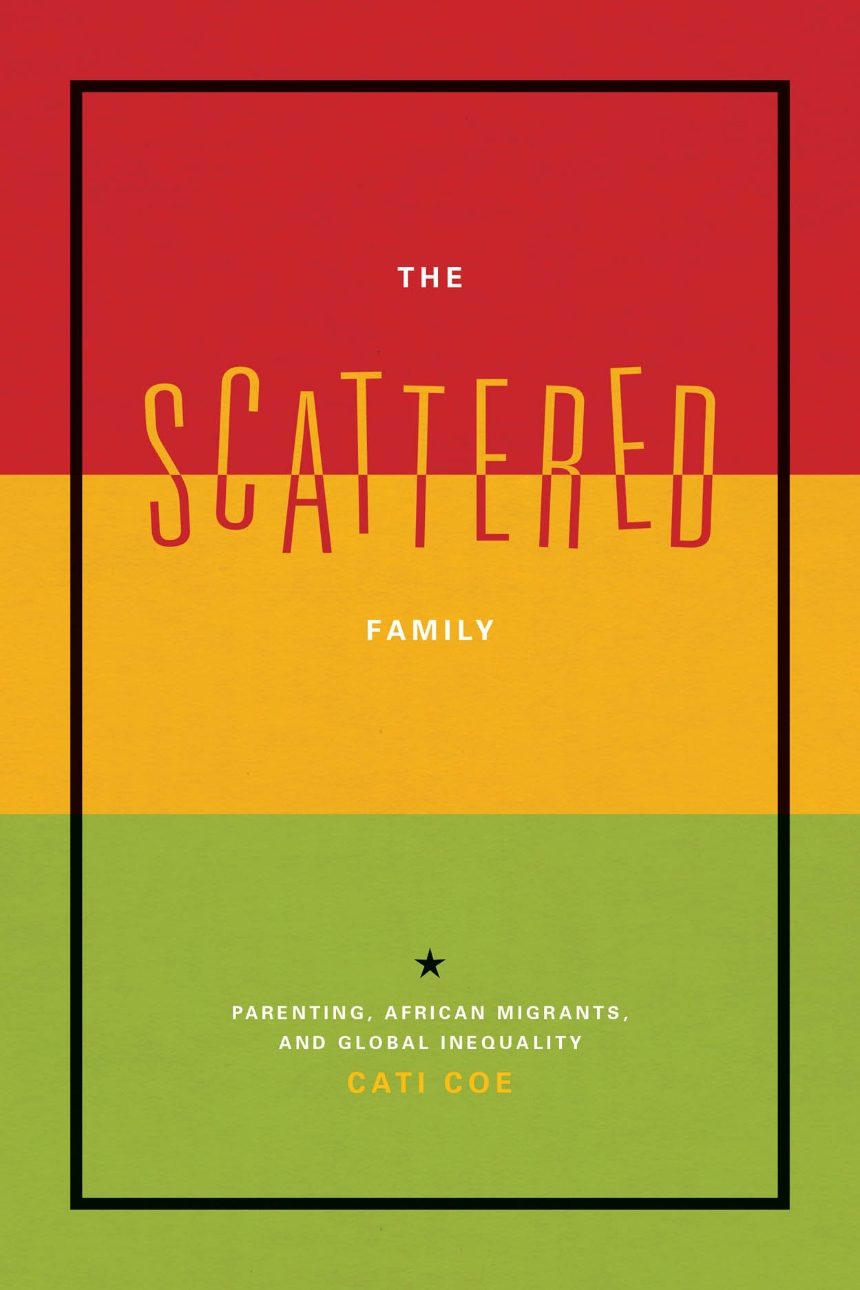The Scattered Family
Parenting, African Migrants, and Global Inequality
9780226072388
9780226072241
9780226072418
The Scattered Family
Parenting, African Migrants, and Global Inequality
Today’s unprecedented migration of people around the globe in search of work has had a widespread and troubling result: the separation of families. In The Scattered Family, Cati Coe offers a sophisticated examination of this phenomenon among Ghanaians living in Ghana and abroad. Challenging oversimplified concepts of globalization as a wholly unchecked force, she details the diverse and creative ways Ghanaian families have adapted long-standing familial practices to a contemporary, global setting.
Drawing on ethnographic and archival research, Coe uncovers a rich and dynamic set of familial concepts, habits, relationships, and expectations—what she calls repertoires—that have developed over time, through previous encounters with global capitalism. Separated immigrant families, she demonstrates, use these repertoires to help themselves navigate immigration law, the lack of child care, and a host of other problems, as well as to help raise children and maintain relationships the best way they know how. Examining this complex interplay between the local and global, Coe ultimately argues for a rethinking of what family itself means.
256 pages | 8 halftones, 2 maps, 4 tables | 6 x 9 | © 2013
Anthropology: Cultural and Social Anthropology
Reviews
Table of Contents
Acknowledgments
Introduction: A Scattering of Families
One A History of Family Reciprocities: Material Exchanges between the Generations in Akuapem
Two Distributed Parenting in the Twentieth Century
Three International Migration and Fosterage: How US Immigration Law Separates Families
Four Work and Child Care in the United States
Five Borderwork: A Repertoire Made Conscious
Six The Dilemmas of Fostering the Children of Transnational Migrants
Seven Children’s Expectations of Care: Love, Money, and Living Together
Conclusion: Barriers and Openings
Notes
References
Index
Introduction: A Scattering of Families
One A History of Family Reciprocities: Material Exchanges between the Generations in Akuapem
Two Distributed Parenting in the Twentieth Century
Three International Migration and Fosterage: How US Immigration Law Separates Families
Four Work and Child Care in the United States
Five Borderwork: A Repertoire Made Conscious
Six The Dilemmas of Fostering the Children of Transnational Migrants
Seven Children’s Expectations of Care: Love, Money, and Living Together
Conclusion: Barriers and Openings
Notes
References
Index
